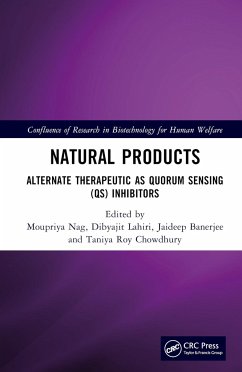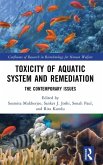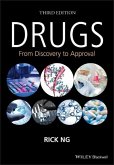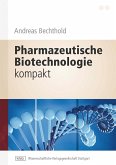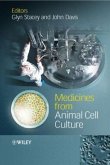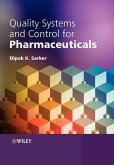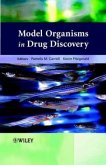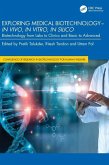Natural Products
Alternate Therapeutic as Quorum Sensing (QS) Inhibitors
Herausgeber: Lahiri, Dibyajit; Chowdhury, Taniya Roy; Nag, Moupriya; Banerjee, Jaideep
Natural Products
Alternate Therapeutic as Quorum Sensing (QS) Inhibitors
Herausgeber: Lahiri, Dibyajit; Chowdhury, Taniya Roy; Nag, Moupriya; Banerjee, Jaideep
- Gebundenes Buch
- Merkliste
- Auf die Merkliste
- Bewerten Bewerten
- Teilen
- Produkt teilen
- Produkterinnerung
- Produkterinnerung
The present book highlights a detailed analysis of the mechanism of biofilm formation in both Gram positive and Gram-negative bacteria and the role of quorum sensing signaling mechanism in the genetic regulation pathway.
Andere Kunden interessierten sich auch für
![Toxicity of Aquatic System and Remediation Toxicity of Aquatic System and Remediation]() Toxicity of Aquatic System and Remediation133,99 €
Toxicity of Aquatic System and Remediation133,99 €![Drugs Drugs]() Rick NgDrugs110,99 €
Rick NgDrugs110,99 €![Pharmazeutische Biotechnologie kompakt Pharmazeutische Biotechnologie kompakt]() Andreas BechtholdPharmazeutische Biotechnologie kompakt44,00 €
Andreas BechtholdPharmazeutische Biotechnologie kompakt44,00 €![Medicines from Animal Cell Culture Medicines from Animal Cell Culture]() Glyn Stacey / John Davis (Hgg.)Medicines from Animal Cell Culture435,99 €
Glyn Stacey / John Davis (Hgg.)Medicines from Animal Cell Culture435,99 €![Quality Systems and Controls for Pharmaceuticals Quality Systems and Controls for Pharmaceuticals]() Dipak Kumar SarkarQuality Systems and Controls for Pharmaceuticals80,99 €
Dipak Kumar SarkarQuality Systems and Controls for Pharmaceuticals80,99 €![Model Organisms in Drug Discovery Model Organisms in Drug Discovery]() Pamela CarrollModel Organisms in Drug Discovery239,99 €
Pamela CarrollModel Organisms in Drug Discovery239,99 €![Exploring Medical Biotechnology- in vivo, in vitro, in silico Exploring Medical Biotechnology- in vivo, in vitro, in silico]() Exploring Medical Biotechnology- in vivo, in vitro, in silico133,99 €
Exploring Medical Biotechnology- in vivo, in vitro, in silico133,99 €-
-
-
The present book highlights a detailed analysis of the mechanism of biofilm formation in both Gram positive and Gram-negative bacteria and the role of quorum sensing signaling mechanism in the genetic regulation pathway.
Produktdetails
- Produktdetails
- Verlag: Taylor & Francis Ltd
- Seitenzahl: 222
- Erscheinungstermin: 1. Dezember 2023
- Abmessung: 229mm x 152mm
- Gewicht: 607g
- ISBN-13: 9781032292380
- ISBN-10: 1032292385
- Artikelnr.: 68715805
- Verlag: Taylor & Francis Ltd
- Seitenzahl: 222
- Erscheinungstermin: 1. Dezember 2023
- Abmessung: 229mm x 152mm
- Gewicht: 607g
- ISBN-13: 9781032292380
- ISBN-10: 1032292385
- Artikelnr.: 68715805
Dr. Moupriya Nag Moupriya Nag is presently working as Assistant Professor in the Department of Biotechnology, University of Engineering & Management, Kolkata. Her research interests includes single molecule Biophysics of protein unfolding/refolding and protein aggregation kinetics and its mechanism of action especially the amyloid proteins in neurodegenerative disorders. Recently, her research focuses on functional amyloids in bacteria and their relation in forming biofilms. Her work deals with developing novel antimicrobial and anti-biofilm compounds from natural sources including plants, microbes and green synthesized nanoparticles. She has about six years of teaching experience in Biophysics, Bioinformatics, Bioprocess and Biotechnology, Enzyme Technology, Computing, Molecular Modeling and Drug Design. She has also published many research articles in the peer-reviewed international journal and authored or co-authored numerous book chapters. She is also a member of many scientific societies like Indian Biophysical Society and Indian Science Congress Association. Dr. Dibyajit Lahiri Dibyajit Lahiri is at present is working as Assistant Professor in the Department of Biotechnology, University of Engineering & Management, Kolkata. His research interest is precisely on biofilm isolated from human prosthesis and its inhibition by various novel phyto and nano compounds. He is keen to explore the molecular mechanism behind the removal of biofilm by natural compounds. His research arena also encompasses computational drug development by using of bioinformatic. His work is regularly being presented and appreciated before a number of experts of National and International repute. He is a life Member of Indian Science Congress Association and Institution of Engineers (India). He has edited two book of international publishing house. Dr. Jaideep Banerjeee Jaideep Banerjee received his PhD in Molecular, Cell and Developmental Biology from the Ohio State University in Columbus, Ohio. He completed his post-doctoral training at the US Army Institute of Surgical Research in San Antonio, Texas and at George Washington University in Washington, DC. Over the last 10 years, Dr. Banerjee has been involved with various aspects of wound healing research and is an editor for the journal Advances in Wound Care and Current Stem Cell Research & Therapy. He has worked as a consultant with Walter Reed Army Institute of Research and with Mike O'Callaghan Military Medical Center. Currently, he leads clinical strategy for Biologics and Regenerative Medicine along with the team of Medical Science Liaisons in the Dept. of Clinical Affairs (Research and Development) at Smith and Nephew. Dr. Taniya Roy Chowdhury Tania Roy Chowdhury is working in Agricultural Research Service at US Department of Agriculture. Her research area is to study soil systems at two scales: the broadly ecological and the complexly microbial trying to understand the vital locus of biodiversity at the critical interfaces of soil, microbes, water and trace gas emissions, microbial underpinnings of biogeochemical changes with a focus on nutrient cycles (carbon, nitrogen, and iron), and specifically on anaerobic microbial processes, including methanogenesis. Ecosystems of interest include wetlands, permafrost, and converted agricultural lands. She is interested in studying connected urban waterways and tackling issues pertaining to environmental health. By applying a range of skills from microbiology, soil science, metabolomics, and high-throughput sequencing technologies, Her studies on the complex interactions between microorganisms and biotic/abiotic factors. The ultimate goal is to detect ecological patterns within a spatial-temporal framework to address management/sustainability challenges. Her extended research interests encompass around.
Chapter 1: Introduction
Chapter 2: Quorum sensing in Gram-positive bacteria
Chapter 3: Quorum sensing in Gram-negative bacteria
Chapter 4: Quorum sensing & Antimicrobial Resistance
Chapter 5: Phytocompounds in inhibiting the quorum sensing cascade
Chapter 6: Microbiologically synthesized nanoparticles in inhibiting quorum
sensing
Chapter 7: Plant mediated synthesized nanoparticles in downregulating
quorum sensing
Chapter 8: Fungal compounds in downregulating quorum sensing
Chapter 9: Antimicrobial peptides in downregulating quorum sensing
Chapter 10: Algal compounds in downregulating quorum sensing
Chapter 11: Microbial Volatile organic products as Quorum quenchers
Chapter 2: Quorum sensing in Gram-positive bacteria
Chapter 3: Quorum sensing in Gram-negative bacteria
Chapter 4: Quorum sensing & Antimicrobial Resistance
Chapter 5: Phytocompounds in inhibiting the quorum sensing cascade
Chapter 6: Microbiologically synthesized nanoparticles in inhibiting quorum
sensing
Chapter 7: Plant mediated synthesized nanoparticles in downregulating
quorum sensing
Chapter 8: Fungal compounds in downregulating quorum sensing
Chapter 9: Antimicrobial peptides in downregulating quorum sensing
Chapter 10: Algal compounds in downregulating quorum sensing
Chapter 11: Microbial Volatile organic products as Quorum quenchers
Chapter 1: Introduction
Chapter 2: Quorum sensing in Gram-positive bacteria
Chapter 3: Quorum sensing in Gram-negative bacteria
Chapter 4: Quorum sensing & Antimicrobial Resistance
Chapter 5: Phytocompounds in inhibiting the quorum sensing cascade
Chapter 6: Microbiologically synthesized nanoparticles in inhibiting quorum
sensing
Chapter 7: Plant mediated synthesized nanoparticles in downregulating
quorum sensing
Chapter 8: Fungal compounds in downregulating quorum sensing
Chapter 9: Antimicrobial peptides in downregulating quorum sensing
Chapter 10: Algal compounds in downregulating quorum sensing
Chapter 11: Microbial Volatile organic products as Quorum quenchers
Chapter 2: Quorum sensing in Gram-positive bacteria
Chapter 3: Quorum sensing in Gram-negative bacteria
Chapter 4: Quorum sensing & Antimicrobial Resistance
Chapter 5: Phytocompounds in inhibiting the quorum sensing cascade
Chapter 6: Microbiologically synthesized nanoparticles in inhibiting quorum
sensing
Chapter 7: Plant mediated synthesized nanoparticles in downregulating
quorum sensing
Chapter 8: Fungal compounds in downregulating quorum sensing
Chapter 9: Antimicrobial peptides in downregulating quorum sensing
Chapter 10: Algal compounds in downregulating quorum sensing
Chapter 11: Microbial Volatile organic products as Quorum quenchers

